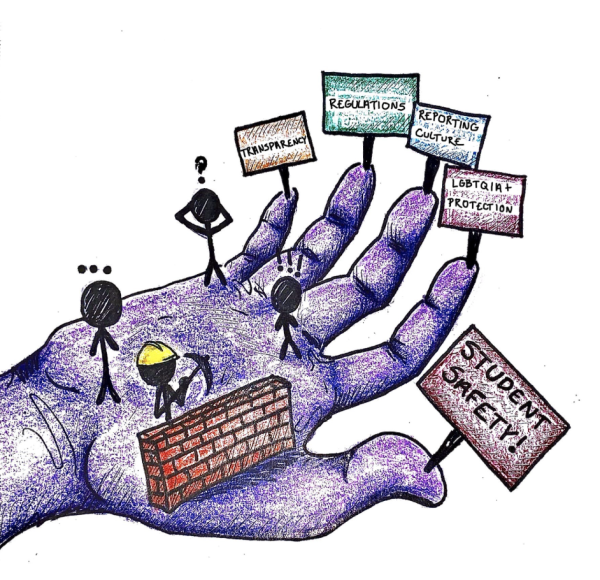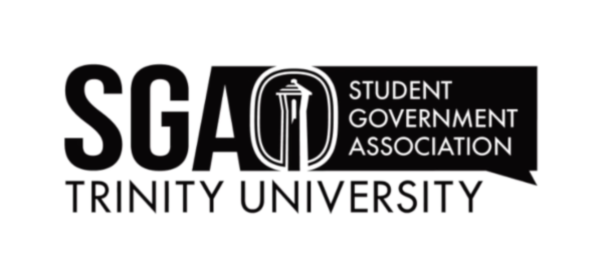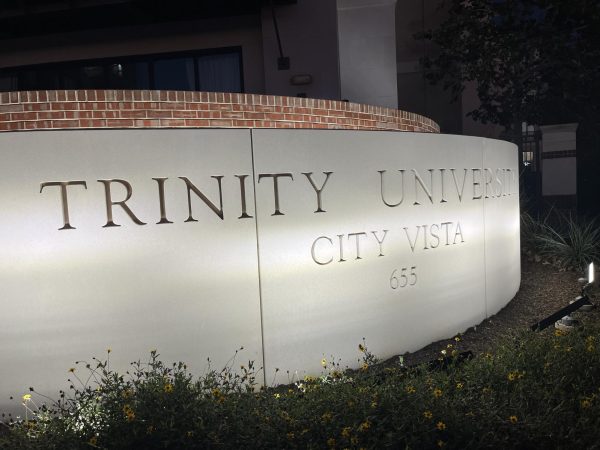Tuition continues to trend upward
Trinity costs to rise by 3.7% in the 2023-2024 school year
The cost of a Trinity University education has consistently risen in the past five years, with Trinity reporting a steady 3% increase in that time frame. This year was no exception, as the institution recently announced a jump in the undergraduate cost of attendance. Going from the current $65,798 to $68,224 in the 2023-2024 school year, this shift will impact all undergraduate students regardless of their living situations.
Many individuals were alerted of this year’s increase in tuition from a letter sent out by the office of admissions and aid. Eric Maloof, vice president for enrollment management, admissions and aid, assisted in the decision process for the tuition increase. After a thorough process of evaluating the costs of this year alongside the current financial climate, Maloof and his colleagues settled on the 3.7% increase in tuition for this year. This is despite factors such as inflation potentially leading to a more significant tuition increase at other institutions.
“I think we’re going to see a lot of colleges potentially raise their tuition at significantly higher rates,” Maloof said. “We decided to take a more temperate approach. … The considerations were different this year because of rampant inflation across the country, but ultimately the process ended up at around the same rate we’ve had in previous years.”
Regular maintenance and facilities of the university have a continually growing price tag, leading to the rising costs of a Trinity degree. However, students such as Gabriela Chadick, sophomore finance and computer science double-major, have been confused about where these increased costs have impacted campus. In previous years, the letters sent out regarding tuition increases featured financial breakdowns of what the funds were directly contributing to. This year, that feature was absent.
“I was really surprised, just because they didn’t give a very specific reason as to why that is,” Chadick said. “They just kinda told us, ‘That is how it is,’ without an explanation. And it’s happened every single year, so if there was clarification as to why, it’d make me feel better about it. But just hearing about it like that made me feel appalled.”
The steady increase in Trinity’s tuition has been substantial in the past decade. Past records indicate a 44.25% increase in tuition and fees for undergraduate students at Trinity in the past ten years. This rate is higher than the national average (31.52%) and lower than the state average increase (49.90%) in the same time period.
Merit scholarships provided by the university will not increase in accordance with the changes in tuition. This means that the value of one of these scholarships decreases slightly over a student’s four years at Trinity.
Chadick is also the president of Alpha Lambda Delta, a first-year honor society. As an organization that provides educational financial aid to its members, they face the same unwavering status of their own scholarships.
“Since some scholarships are not increasing … it makes some people’s financial hardship even harder,” Chadick said. “Even with Alpha Lambda Delta, we usually keep it at the same rate, so it’s not as helpful anymore, which stinks, especially for the people who need that tuition to stay the same.”
Although merit scholarships remain at the same rate as when students initially enroll, financial aid for students at Trinity remains a steady focal point for admissions and financial services. Financial aid continues to change year to year, depending on the needs of students and the finances available.
“The most expensive item from an expense standpoint is financial aid for our students, both merit and need-based assistance, which exceeds $75 million,” Maloof said. “That is extremely important to us. We are committed to access affordability, both to and through the institution.”
As the costs of Trinity continue to change annually, the university aims to maintain and build upon its overall mission and consistently provide the best product for its students as the overall economic landscape changes.
“We’ve chosen a model that’s expensive,” Maloof said. “We’re a residential institution. We’re committed to small class sizes. We’re committed to having world-class faculty supporting our students, in particular, a world-class faculty and small class setting without graduate students or teaching assistants. That is a model that costs money, and it’s a model that costs more money every year that we commit to that model.”

My name is Joshua Mitra and I'm a sophomore planning to double major in political science and communications. I'm from Boise, Idaho and use he/him pronouns....

I'm Tony Rodriguez! I'm a junior from San Antonio, TX, majoring in math, and I worked as a copy editor for the Trinitonian about two years ago and am now...






